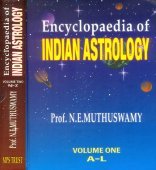Had: 8 definitions
Introduction:
Had means something in Hinduism, Sanskrit, Hindi, biology. If you want to know the exact meaning, history, etymology or English translation of this term then check out the descriptions on this page. Add your comment or reference to a book if you want to contribute to this summary article.
Images (photo gallery)
(+109 more images available)
Biology (plants and animals)
Source: Google Books: CRC World Dictionary (Regional names)Had in Niger is the name of a plant defined with Cornulaca monacantha in various botanical sources. This page contains potential references in Ayurveda, modern medicine, and other folk traditions or local practices It has the synonym Cornulaca monacantha var. diacantha Maire.
Example references for further research on medicinal uses or toxicity (see latin names for full list):
· Flora of Saudi Arabia
· Phytochemistry (2001)
· International Journal of Agriculture and Biology (2005)
· Description de l’Égypte, … Histoire Naturelle (1813)
· Journal of Ethnopharmacology (2006)
· Pharmazie (2000)
If you are looking for specific details regarding Had, for example side effects, health benefits, pregnancy safety, diet and recipes, extract dosage, chemical composition, have a look at these references.

This sections includes definitions from the five kingdoms of living things: Animals, Plants, Fungi, Protists and Monera. It will include both the official binomial nomenclature (scientific names usually in Latin) as well as regional spellings and variants.
Languages of India and abroad
Sanskrit dictionary
Source: DDSA: The practical Sanskrit-English dictionaryHad (हद्).—1 Ā. (hadate, hanna) To void excrement, evacuate or discharge feces. -Desid. (jihatsate).
Source: Cologne Digital Sanskrit Dictionaries: Shabda-Sagara Sanskrit-English DictionaryHad (हद्).—r. 1st cl. (hadate) To evacuate as fæces, to discharge excrement.
Source: Cologne Digital Sanskrit Dictionaries: Benfey Sanskrit-English DictionaryHad (हद्).—i. 1, [Ātmanepada.] To evacuate, as fæces. Ptcple. pf. pass. hanna, Passed, as ordure.
— Cf. probably O. H. G. scīzan; A. S. scitan.
Source: Cologne Digital Sanskrit Dictionaries: Cappeller Sanskrit-English DictionaryHad (हद्).—hadati cacare.
Source: Cologne Digital Sanskrit Dictionaries: Monier-Williams Sanskrit-English DictionaryHad (हद्):—[class] 1. [Ātmanepada] [Parasmaipada] ([Dhātupāṭha xxiii, 8]) hadati, te ([perfect tense] jahade; [Aorist] ahatta etc. [grammar]),
—to evacuate, discharge excrement, [Bhāgavata-purāṇa; Sarasvatī-kaṇṭhābharaṇa, by Bhoja; Kathārṇava] :—[Causal] hādayati [grammar]:—[Desiderative] jihatsate, [ib.] :—[Intensive] jāhadyate, jāhatti, [ib.] cf. [Greek] χέζω.
[Sanskrit to German]
Sanskrit, also spelled संस्कृतम् (saṃskṛtam), is an ancient language of India commonly seen as the grandmother of the Indo-European language family (even English!). Closely allied with Prakrit and Pali, Sanskrit is more exhaustive in both grammar and terms and has the most extensive collection of literature in the world, greatly surpassing its sister-languages Greek and Latin.
Hindi dictionary
Source: DDSA: A practical Hindi-English dictionaryHad in Hindi refers in English to:—(nf) limit/limitation, boundary; extent; ~[bamdi] delimitation; demarcation; -[kara dena/karana] to commit an excess; to reach the farthest limit; -[para karana] to cross the limit; —[bamdhana] to draw the line at, to set a definite limit; —[se gujarana] to cross the limit; —[se jyada] beyond the limit; too much; to a fault; •[khula jana] to take liberties/freedom with..—had (हद) is alternatively transliterated as Hada.
...
See also (Relevant definitions)
Starts with (+391): Haadchha, Haadnata, Haadnatakarani, Had sankat, Hada, Hada-darjako, Hada-ghotnu, Hadabada, Hadabadana, Hadabadanem, Hadabadata, Hadabadaunu, Hadabadavinem, Hadabade, Hadabadi, Hadabadita, Hadabadiya, Hadabandi, Hadabe, Hadabebilu.
Ends with (+644): Aantijo-jhad, Abhicchad, Abhinisad, Abhishad, Acchad, Achchhad, Adbhutopanishad, Adhinisad, Adhyatmavidyopanishad, Adhyatmopanishad, Advaitarkopanishad, Advaitopanishad, Advayatarakopanishad, Agdhad, Agnihotropanishad, Airavatopanishad, Aitareyatmashatkopanishad, Aitareyopanishad, Akhad, Akhilasamhitopanishad.
Full-text (+8087): Ravana, Shatrughna, Turvasu, Abhimantrita, Uttanapada, Sudyumna, Amba, Grishti, Krishna, Nandana, Parashurama, Rishabha, Prasutika, Riksha, Ajamidha, Candravamsha, Gogrishti, Anubhavi, Sujata, Rohita.
Relevant text
Search found 526 books and stories containing Had; (plurals include: Hads). You can also click to the full overview containing English textual excerpts. Below are direct links for the most relevant articles:
Vinaya Pitaka (3): Khandhaka (by I. B. Horner)
The story of without a preceptor, etc. < [1. Going forth (Pabbajjā)]
The portion on thirty-two (cases) where one should not let go forth < [1. Going forth (Pabbajjā)]
The story of one gone forth when old < [6. Medicine (Bhesajja)]
The Story of a Tulsi Plant < [October - December 1973]
Heart’s Hungers and Heartburns < [January – March, 1989]
“Strange Woman” < [October 1950]
Puranic encyclopaedia (by Vettam Mani)
The Garuda Purana (by Manmatha Nath Dutt)
Chapter CXXXVIII - Genealogy of royal princes (solar race) < [Brihaspati (Nitisara) Samhita]
Chapter CXXXIX - Genealogy of the princes of the lunar race < [Brihaspati (Nitisara) Samhita]
Chapter CXL - Description of the race of puru < [Brihaspati (Nitisara) Samhita]
Heimskringla (by Snorri Sturlson)
Part 51 - Thorer Klakka's Journey < [Chapter VI - King Olaf Trygvason's Saga]
Part 261 - Of The Throndhjem People < [Chapter VII - Saga Of Olaf Haraldson]
Part 139 - Here Begins The Story Of Canute The Great < [Chapter VII - Saga Of Olaf Haraldson]
Related products
(+31 more products available)











